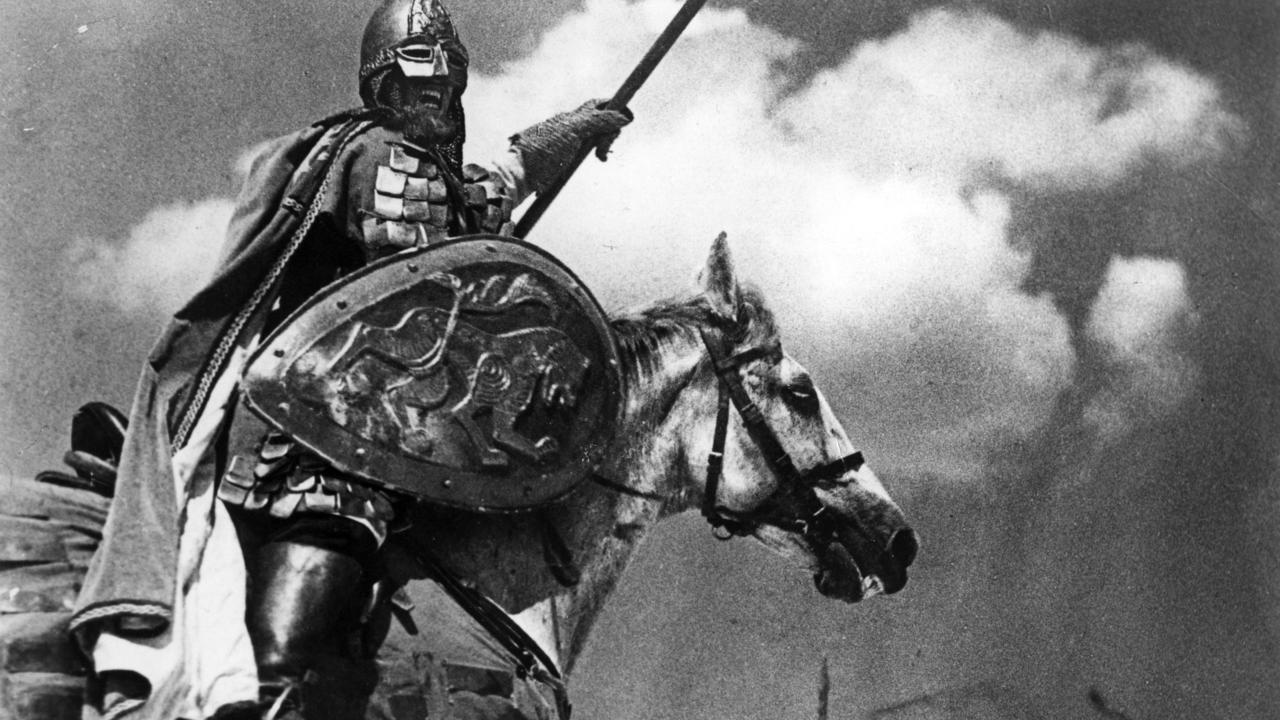Who is Alexander Nevsky, the prince in whose name Russians built churches?
He defeated the Swedes on the banks of the Neva. That's why he got the name Nevsky and was declared a national hero in Russia. Nevsky was canonized by the Russian Orthodox Church in 1380.

Peter the Great had an "engagement" prepared in the name of Nevsky. In 1941-1942, Stalin declared Alexander Nevsky a "National Hero". A military service badge bearing his name was placed.
In April 1242, he defeated the Teutonic knights on the ice of Lake Pskov and saved both Russia and Orthodoxy. Alexander Nevsky, one of the great figures of medieval Russia, was canonized by the Orthodox Church. Just as the Alexander Nevsky Monastery was built by Peter the Great in 1712, the Order of Alexander Nevsky was established in 1722. In 1941, after the German invasion of the Soviet Union, the memory of Alexander Nevsky was revived, and the Order of A. Nevsky was established once again. Also in 1938, the famous director Eisenstein made a film about Alexander Nevsky's war with the Teutonic knights.
Alexander Yaroslavich Nevsky (13 May 1221 – 14 November 1263) was Prince of Novgorod (1236–1240; 1241–1256; 1258–1259), Grand Prince of Kyiv (1246–1263) and Grand Prince of Vladimir (1252–1263). Commonly regarded as a key figure in medieval Russian history, Alexander was a grandson of Vsevolod the Big Nest and rose to legendary status on account of his military victories over Swedish invaders. He preserved separate statehood and Orthodoxy, agreeing to pay tribute to the powerful Golden Horde. Metropolitan Macarius of Moscow canonized Alexander Nevsky as a saint of the Russian Orthodox Church in 1547.
- From the movie... -
The time is the 13th century...
Think of the difficult period when Russia was invaded by the Teutonic Knights on one front and the Tatars on the other.
With the invasion, their homeland is plundered and the morale of the people collapses.
Eventually, the unstable and flighty Prince Nevsky is called upon to lead his people in their fight against their oppressors.
Nevsky, an intelligent nobleman who was not afraid of doing anything, gathered his army and won a historic victory in the battle he fought on the frozen Lake Pypus in 1242.
Wearing terrifying helmets inspired by monsters, creatures, and wild animals, the Teutonic Knights attack the Russian army of peasants and nobles with swords, spears, and axes, but in the end, the heavily armored invaders fall victim to the cracking ice of the lake.
He lived during the period when the Mongol Armies dominated Asia. The Papacy was organizing expeditions to Christianize Asia as well as the Baltic coast. Russian principalities were the last refuges of Orthodoxy (Eastern Church). Alexander defeated the Swedish forces on the Neva and received the title of Nevsky (1240). In 1243, he defeated the Teutonic and Schwertrager knights and reduced the attacks from the west. After his father's death (1243), Batu Khan, the ruler of the region, sent Alexander Nevsky and his brother Andrey to Karakorum. Andrey became the grand prince of Vladimir, and Alexander Nevsky became the grand prince of Kyiv. After Andrey's conflict with the Mongols and his defeat in 1252, the Grand Principality of Vladimir was given to Alexander Nevsky.
Nevsky, who maintained a measured cooperation with the Golden Horde State, had his son arrested when he revolted against the Mongols in Novgorod and was pardoned by Berke Khan after the uprising in Suzdal in 1262.
Nevsky was canonized by the Russian Orthodox Church in 1380. Peter the Great had an "engagement" prepared in the name of Nevsky. In 1941-1942, Stalin declared Alexander Nevsky a "National Hero". A military service badge bearing his name was placed.
